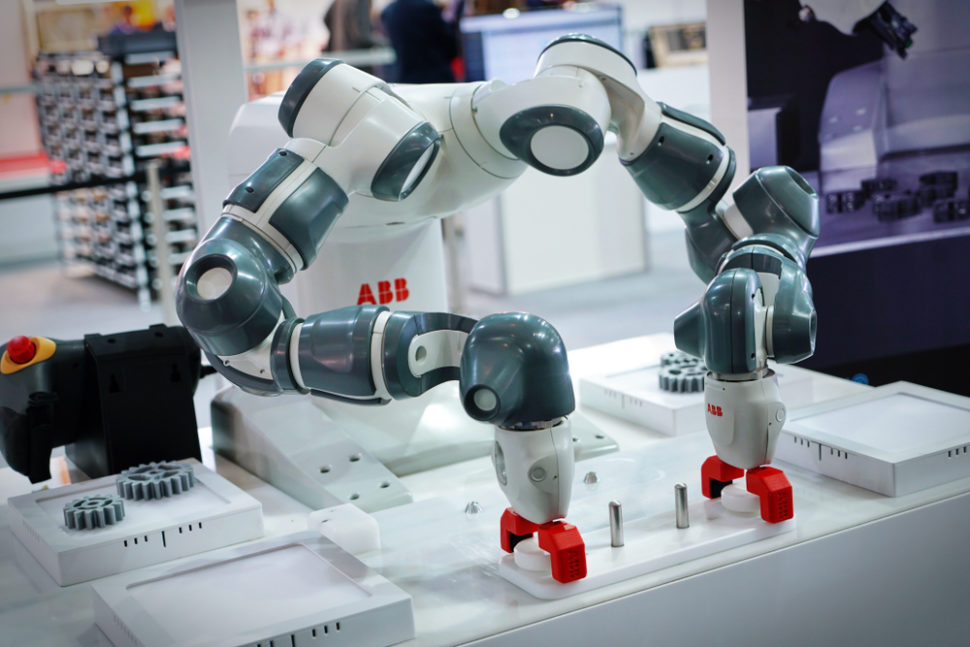China will soon be home to a new advanced robotics factory where robots will be the ones to build other robots.
Swiss robot maker ABB recently announced its investment of $150 million USD to build an advanced robotics factory in Shanghai, China. According to reports, the facility will use robots to make other robots, entrusting minor parts assembly to the company’s YuMi one-arm robot.
The company plans to build the “Kangqiao” manufacturing center in the Pudong New Area near ABB’s Shanghai robotics campus.
In an interview with the Chinese media over the weekend, ABB Chief executive Officer Ulrich Spiesshofer claimed that their new facility would “shape the next generation of manufacturing, the next generation of capacity.”
ABB’s latest venture is part of the company’s efforts to be the world’s number one manufacturer of industrial robots. To date, China is ABB’s second market next to the United States. Spiesshofer believes that Shanghai has what it takes to be the center of ABB’s advanced technology leadership.
ABB’s Advanced Robotics Factory
While ABB’s next generation facility in Shanghai will be around 6,968 square meters, the company said that their goal is not to build the largest robotics factory but to build the most flexible space. The facility will utilize sophisticated software that will enable humans and robots to work together in close proximity.
All engineers, operators, managers, and other staff will perform real-time monitoring and assessment initiatives. Their efforts will then be enhanced by ABB’s Ability™ Connected Services, a system which helps in spotting potential issues while still in the early stages to reduce downtime and increase productivity.
Designers envision the future factory to house an artificial intelligence research center, collaborative robotics, and many other digital technologies. They have also created a new design to boost collaboration while making the most out of every production space.
ABB also has other robotics facilities located in Sweden and the U.S. The company plans to begin production by the end of 2020 with an annual production capacity of around 100,000 robots.



















Comments (0)
Least Recent